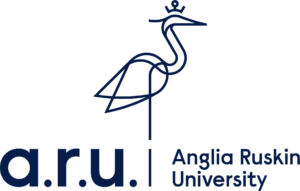About the research
This report presents the findings from a three year research project by a multidisciplinary team at the University of Cambridge and Anglia Ruskin University. This research builds on the interim research findings from the first phase of the project, as published in the report School approaches to the education of EAL students. The second phase of the project investigated the role of school assessment, pedagogy and student support in developing the academic achievement of socially disadvantaged, newly arrived migrant children with a view to match their academic and cultural needs to educational provision.
Key recommendations in the report include:
‘EAL coordinators’ within schools should be part of a national framework of support specialists for children for whom English is an additional language
- ‘There is a need to develop high quality, Masters level accredited training for the EAL co-ordinator role, akin to the requirements for the new Special Education Needs co-ordinators. The role of the EAL Coordinator should be professionalised. Networks could be established and guidelines developed and shared to raise the status of EAL support, and the prominence of those who coordinate it within individual schools, as well as the wider system.’ Michael Evans, Reader in Education at Cambridge’s Faculty of Education
A model of accountability should be established, similar to Pupil Premium support for those eligible for free school meals, in which resource from the national budget is contingent on pupil progress
- The report warns that there is a lack of accurate information on linguistic proficiency, which can mask EAL pupils’ academic potential. While pupils within the study developed functional oral proficiency within a year, many continued to struggle to use appropriate “academic” English.
- Currently, recorded data gives no indication of an EAL pupils’ proficiency and funding is for three years only, after which there is no additional support, regardless of the pupil’s proficiency in English. By contrast, in the US, assessment continues and pupils only exit the EAL status once proficiency is achieved.
Embedding EAL training in teacher training programmes, and including EAL inductions as part of the school orientation for newly qualified teachers
- In interviews, the researchers found that the parents of EAL students cared considerably about the social and academic progress of their child. However, they also observed that school staff often use very limited definitions of parental engagement, such as attendance of parents’ evenings. Many parents of EAL pupils had little understanding of the school system, leaving them lacking confidence and fearful of engaging, along with barriers of language. This can lead to assumptions about parents that are ‘unlikely to represent actual level of interest’.
Encouraging parental involvement
- ‘Schools should take advantage of the opportunities offered by high levels of parental interest, by developing information and communication strategies which reflect an ‘outreach mentality’.
- ‘Targeted strategies for encouraging community and parental networks could, for example, offer bilingual support by sharing translations of routine school information. Parents of EAL students are significantly underrepresented in school structures, and such cost-effective networks could help integrate this untapped resource.’ Claudia Schneider, Principal Lecturer in Social Policy at Anglia Ruskin University

